Looking for a new way to get ahead? You’ll likely find it in this month’s roundup. There’s a lot to unpack in this list of case studies, guides, and SEO news.
The case studies are first. You’ll get the latest data on how to use semantic search, where GSC clicks are going, and whether freshness signals in your titles can improve SEO.
Next, the guides will help you sharpen your skills. You’ll find out how to build topic clusters, use new SERP features, estimate any site’s traffic, and balance the value of links.
Finally, you’ll get caught up with the latest news. You’ll learn about the instability that followed the last core update, how Apple may be launching a search engine and how Google will be simplifying its search console reports.
Using Knowledge Of Semantic Search To Improve E-A-T
https://www.mariehaynes.com/using-semantic-search-to-improve-eat/
Marie Haynes brings you this detailed look at how to improve your E-A-T scores by applying semantic search principles. In this presentation, she showcases and explains years of Google statements to help you form a clearer picture of how it all works.
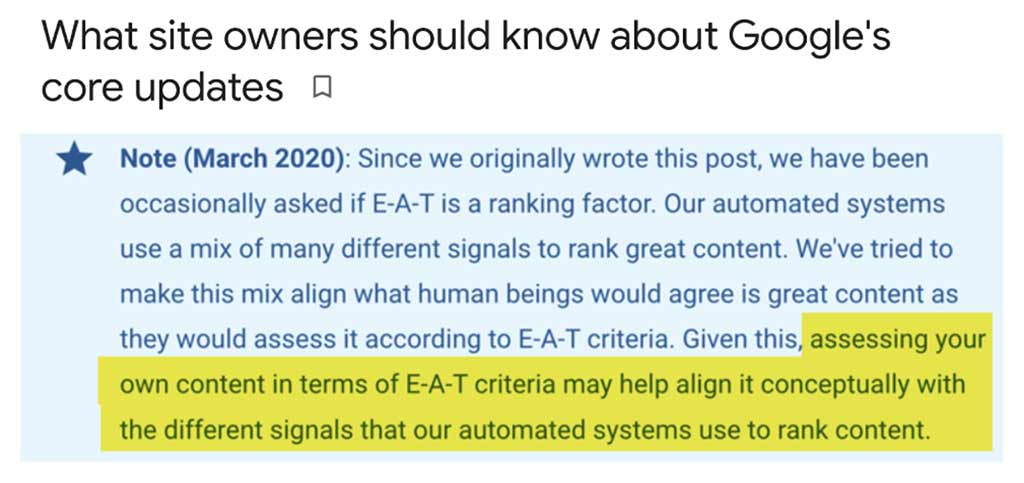
You’ll learn the answers to most of the top questions about how semantic search works, including:
 What is lexical search?
What is lexical search? What does Hummingbird have to do with lexical and semantic search?
What does Hummingbird have to do with lexical and semantic search? How do I improve Google’s understanding of entities associated with me?
How do I improve Google’s understanding of entities associated with me?
By the end of this well-researched breakdown, you’ll have a better idea of how to assess content with E-A-T in mind, clarify your entity information, and create effective topic hubs. If you are new to any of these topics, then this is just the resource you need to catch up.
Our next piece confronts the possibility that you may not be getting all the data you need for analysis. You’ll find out why Google Search Consoles may be withholding some (or even all?) of your keywords.
Almost Half Of GSC Clicks Go To Hidden Terms – A Study By Ahrefs
https://ahrefs.com/blog/gsc-hidden-terms-study/
Patrick Stox of Ahrefs wants you to know that you can’t completely trust the keyword data you’re getting from GSC. He argues that you may not be seeing all the keywords that are driving clicks to your site. In fact, you may be seeing less than half of them.
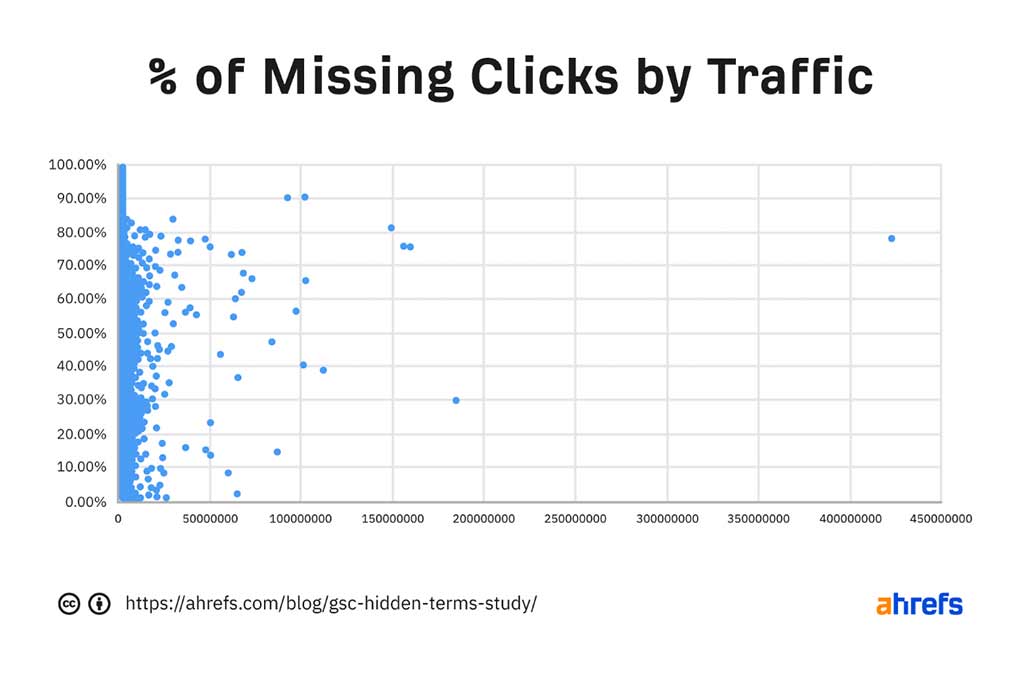
The team analyzed nearly 150,000 sites. From there, they examined how many keywords were hidden, and how badly sites were affected. They found that there was a significant amount of variation, with some sites missing 100% of their clicks.
Patrick follows up the analysis with some tips that you can use to find out how much data you may be missing from your own reports. You’ll get a set of step-by-step instructions to produce a report that tells you more.
The study closes with some analysis of why your data may be hidden. For example, he cites statements by Google that some data is protected for privacy reasons.
You may not know all the keywords to drive clicks to your sites, but titles are still easy to test. The next case study examines whether giving them a freshness update can provide substantial benefits.
Can Improving Freshness Signals In Titles Benefit SEO?
https://www.searchpilot.com/resources/case-studies/last-updated-in-title/
Emily Potter of SearchPilot brings you this study on the impact of improving freshness signals in your meta titles.
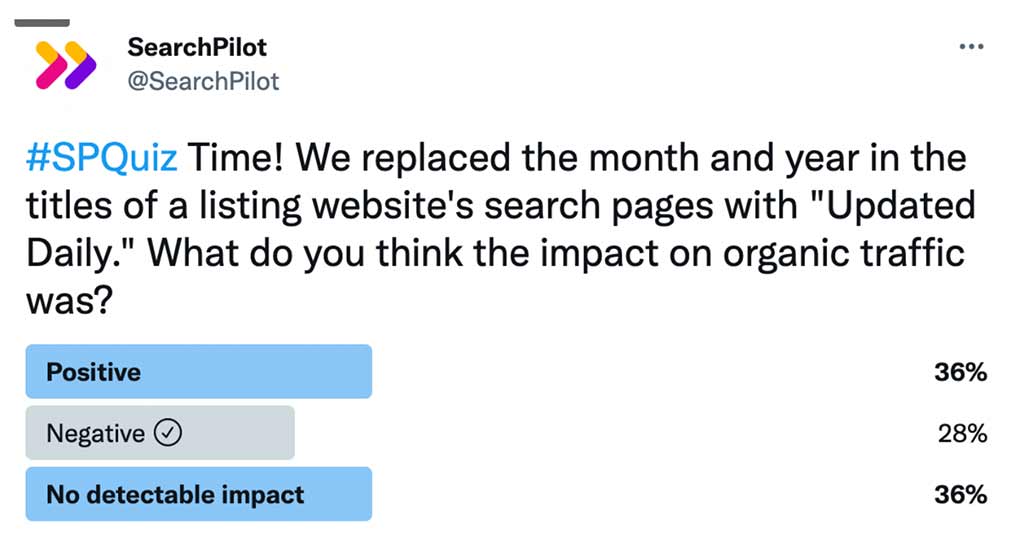
Google may rewrite many titles, she argues, but changes can still produce positive results you can track. This study shows you that some title updates may be really worth your time and effort.
The case study covered here examines the impact of freshness signals in particular. Freshness signals are indications that a page is still active and being refreshed regularly. In your metas, these signals might be communicated through phrases like:
Updated Daily
Updated for [Month/year]
New Products
The SearchPilot team used the first phrase in a split-test, resulting in an 11% improvement during the testing period. Check out the full study to learn more about how you can get similar results.
That covers the case studies for the month, and the guides are next. The first one teaches you how to build better topic clusters.
6 Steps To Effectively Build Topic Clusters
https://www.rankranger.com/blog/topic-cluster-tips
Begum Kaya brings you this in-depth look at how to build topic clusters more effectively than you have in the past. You can find the original podcast episode at the link, along with a full transcript if you prefer to read it.
She covers most of the introductory information you need if this topic is new to you, including what clusters are, and their benefits. Then, she goes further and provides you with a series of rules you can follow to avoid mistakes, optimize the distribution of content, and measure the impact.
Begum brings a significant amount of e-commerce experience to this talk. It shows in the quality of the examples she uses. If you work in e-commerce, you may be able to benefit more from this guide than the average reader.
Because of the potential benefits, organizing your topic clusters should be high on your to-do list if you haven’t already done so. The next piece will give you a preview of Google’s future plans with some of their active SERPs experiments.
Amazing Search Experiments And New SERP Features In Google Land (2022 Edition)
https://www.gsqi.com/marketing-blog/amazing-search-experiments-new-serp-features-google-land-2022/
Glenn Gabe brings you this comprehensive look at nearly a dozen Google experiments that have happened recently or are still being tested by the company. You’ll get some rare details about nine of them, and what they tell you about Google’s plans for the future.
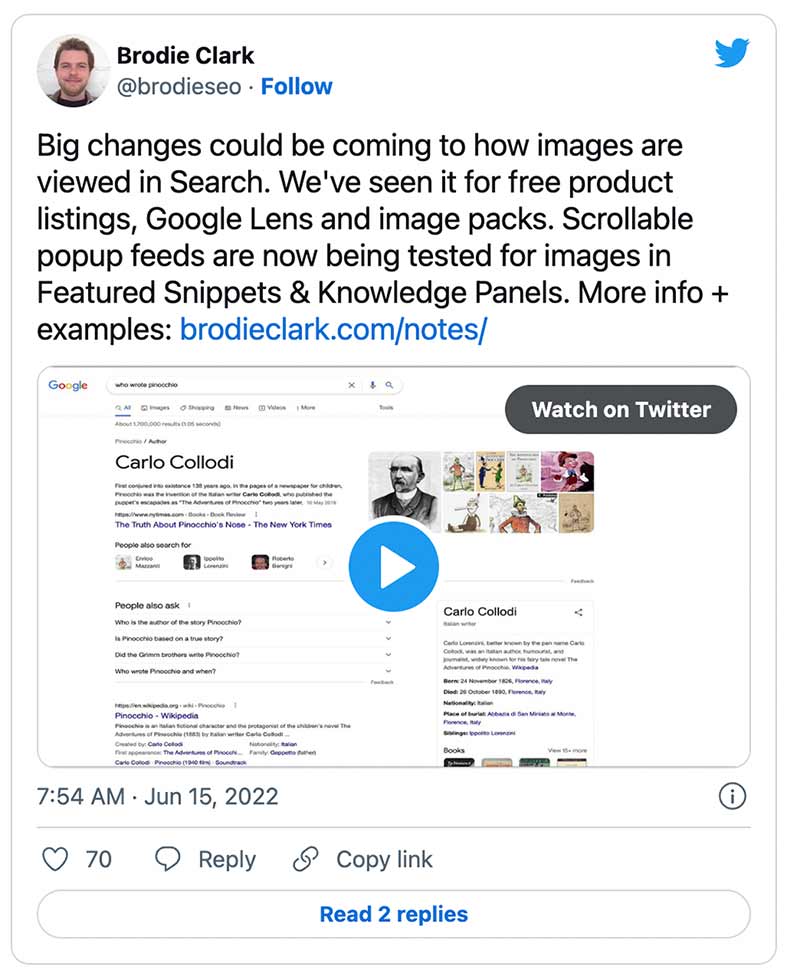
The tests he covers for you include:
 Google’s Explore Wonderland
Google’s Explore Wonderland The Grid Treatment
The Grid Treatment Discover’s “More Recommendations”
Discover’s “More Recommendations” “Things To Know”
“Things To Know” Ad Label Tests
Ad Label Tests
Let’s dive into the first one as an example. Explore Wonderland refers to a new section that has been appearing at the bottom of SERPs and providing new kinds of visual-packed content. Glenn provides you with several images of these, so you know what to expect.
He also includes some analysis from the SEO world about the possible meaning of these new tests. Maybe the feature represents some merger of Discover and SERPs? The guide is filled with interesting analyses about what’s coming next.
In our next guide, you’ll learn something you can put into action right now. You’ll learn a method you can use to find competitors’ traffic numbers.
Find Out How Much Traffic ANY Website Gets: 3-Step Analysis (With TEMPLATE)
https://www.robbierichards.com/seo/how-much-traffic-website-gets/
Robbie Richards has a method that may help you find out the traffic details of any competitor. As he points out, this information is typically hard to get without access to their Google Analytics account.
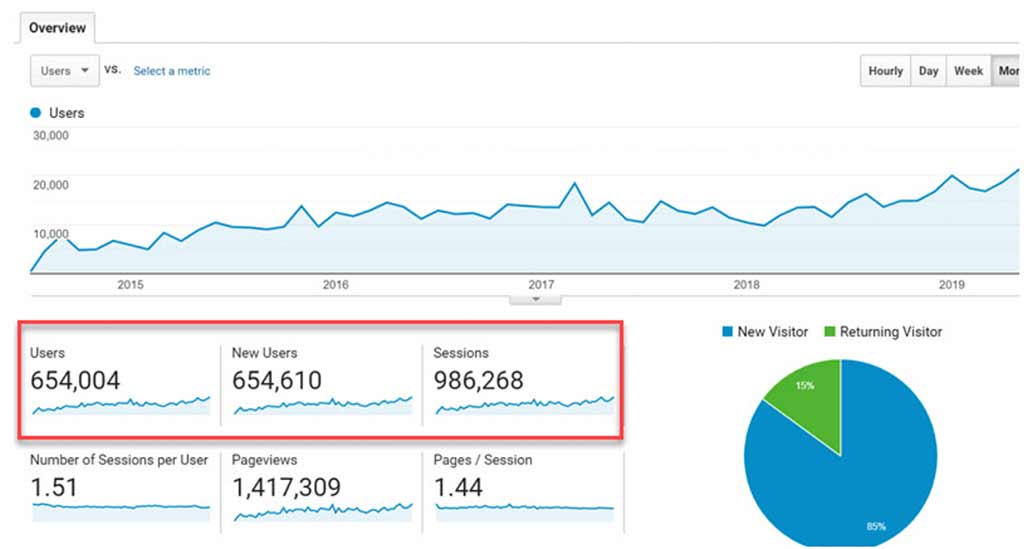
The method that he uses starts with total website traffic and then works downward to isolate data into the segments you can use. He shows you how to find all the following kinds of data for your competitors.
Visits
Unique Visitors
Visit Duration
Bounce Rate
He goes further by showing you how to find out what traffic a competitor’s website gets at the subfolder, page, and even keyword levels. You’ll also learn how to track down paid traffic numbers.
The guide is built around SEMrush, but 4 workable alternatives are covered in the end section. In the final guide of the month, you’ll learn how to make better choices when judging the relevance of links.
Link Relevance Vs. Content Relevance In Link Building
https://moz.com/blog/link-relevance-vs-content-relevance
Paddy Moogan wants to help you understand the important differences between two link valuation factors: Link relevance and content relevance. Throughout the guide, he argues there are multiple points of relevancy that must be assessed when choosing a link.
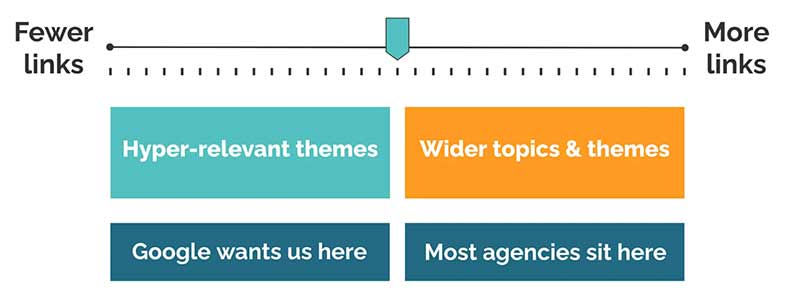
He identifies link relevance, content relevance, page relevance, and domain relevance, in addition to anchor text. He tells you how to look for each one, and why they are likely to make a difference in the success of your link-building strategy.
He also provides you with some of his own insight into which of these factors weigh more, and how they compare to outside factors such as authority and trust. The guide closes with some extra advice on how to ensure links are content-relevant in particular.
That’s it for the guides this month. Next up are some of the big news items you can’t afford to sleep on. First, we looked at some evidence the Google May Update wasn’t as complete as announced.
Google May 2022 Core Update – Big Tremors After It Was Complete?
https://www.seroundtable.com/google-may-2022-core-update-big-tremors-33577.html
Barry Schwartz is asking if the May Core Update is really over after instability continued through mid-June.
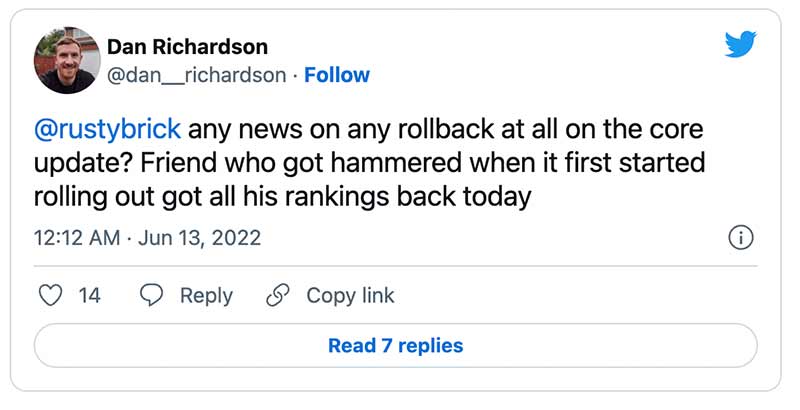
As you learned in the last roundup, the update was officially announced as complete on Jun 9th. However, big tremors continued to hit site data for weeks afterward. Barry collected some of the chatter and some of the evidence that was showing up on charts.
For the chatter, at least, the news seemed surprisingly good. SEOs across WebmasterWorld and Black Hat World were talking about seeing reversals for sites that were hit hard. However, some SEOs did report serious declines. Check out the article to get the full set of graphs tracking the volatility.
Google has more reason to be concerned about how users are feeling, as of late. News is spreading that Apple may soon launch its own search engine.
Is Apple About To launch Its Very Own Search Engine?
https://www.techradar.com/news/is-apple-about-to-launch-its-very-own-search-engine
Joel Khalili of Tech Radar brings us this early look at the rumors surrounding Apple’s search engine. As the rumor goes, the announcement will be made in January. While bloggers and insiders have latched on to the news, Apple Inc. remains characteristically tight-lipped.
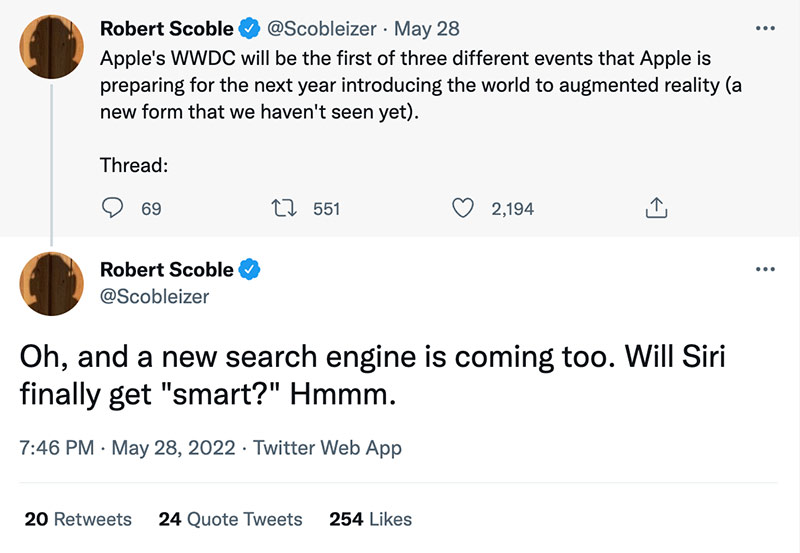
Apple has been building internal search features for years, and they also have a large user base on their Safari browser. If Apple implements a search engine into Safari, in the same way Google has with Chrome, it could reach enough people for a strong launch.
Additionally, Google is under federal antitrust pressure that could leave a big opening for a new player in search.
Imagine a search engine that can answer both “How fast does a cheetah run” and “where did I put down my keys?”
We may be a long way out from the official word on a search engine. Meanwhile, Google is making some effort this month to make SEOs happy. Google Search Console reports just got a lot simpler.
Google Announcement: Simplifying Search Console reports
https://developers.google.com/search/blog/2022/06/search-console-item-classification
Google has officially announced that they’ve changed search console reports and the way they classify pages, items, and issues. These changes are intended to make it easier for you to identify high-priority items without needing to dig through the data.

For example, they removed the old page and item statuses (valid, warning and error) and reorganized them into invalid and not invalid. The invalid status means that there is a critical issue on the page that needs immediate addressing. Not invalid means problems are present, but none that are considered critical.
This change should make it easier to note which pages require immediate attention. It will be rolling out over a couple of months.
That closes out this month’s roundup. There are a lot of changes to catch up on if you’re active with your SEO. It’s probably a good idea to get started now because we’ll have plenty more for you in next month’s roundup.
Got Questions or Comments?
Join the discussion here on Facebook.



